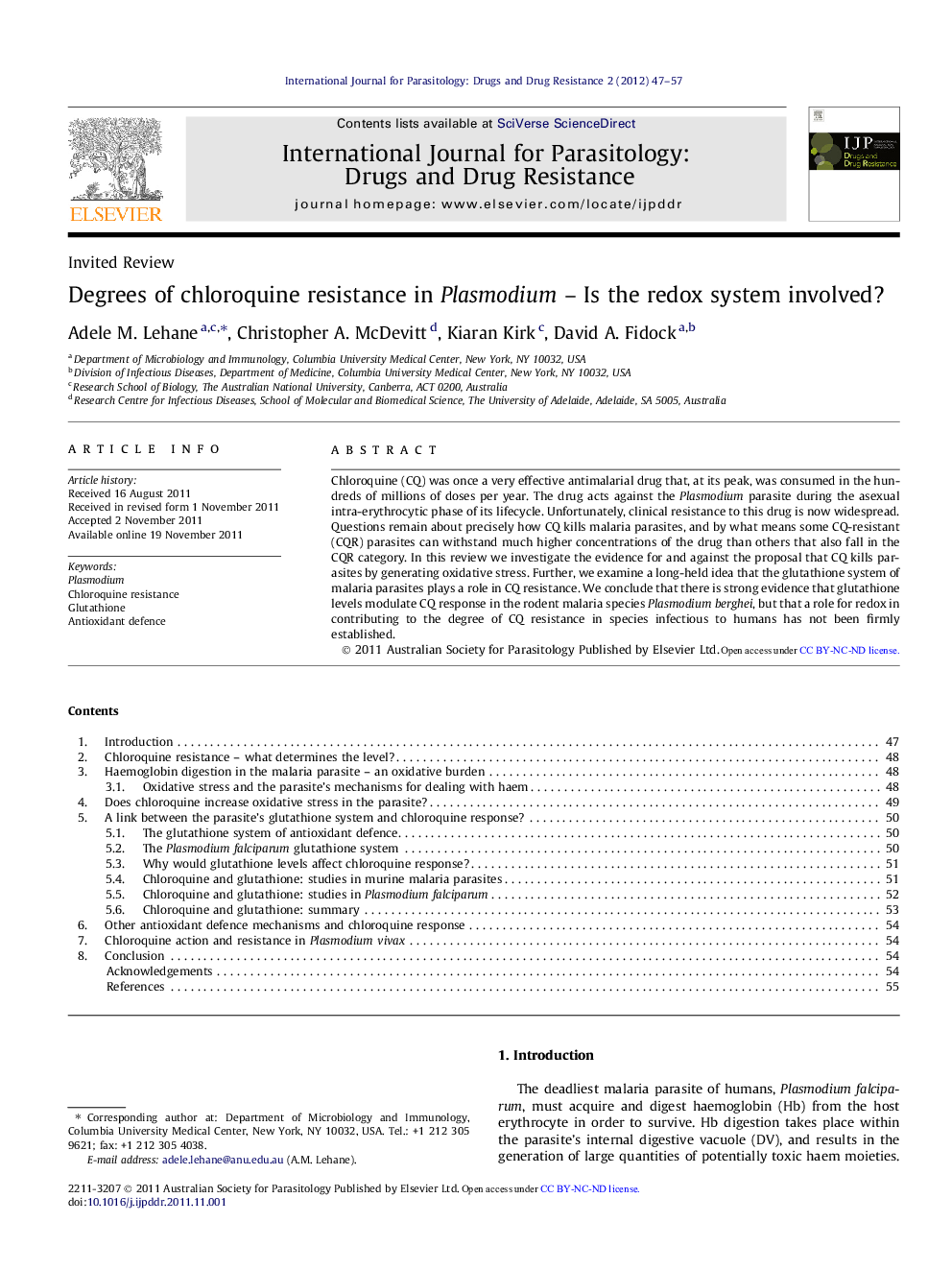| کد مقاله | کد نشریه | سال انتشار | مقاله انگلیسی | نسخه تمام متن |
|---|---|---|---|---|
| 2054703 | 1543807 | 2012 | 11 صفحه PDF | دانلود رایگان |

Chloroquine (CQ) was once a very effective antimalarial drug that, at its peak, was consumed in the hundreds of millions of doses per year. The drug acts against the Plasmodium parasite during the asexual intra-erythrocytic phase of its lifecycle. Unfortunately, clinical resistance to this drug is now widespread. Questions remain about precisely how CQ kills malaria parasites, and by what means some CQ-resistant (CQR) parasites can withstand much higher concentrations of the drug than others that also fall in the CQR category. In this review we investigate the evidence for and against the proposal that CQ kills parasites by generating oxidative stress. Further, we examine a long-held idea that the glutathione system of malaria parasites plays a role in CQ resistance. We conclude that there is strong evidence that glutathione levels modulate CQ response in the rodent malaria species Plasmodium berghei, but that a role for redox in contributing to the degree of CQ resistance in species infectious to humans has not been firmly established.
Figure optionsDownload as PowerPoint slideHighlights
• We review the case for redox involvement in chloroquine resistance in malaria.
• Whether chloroquine kills parasites by generating oxidative stress remains unclear.
• Glutathione levels modulate chloroquine response in a murine malaria species.
• A role for redox in human malaria chloroquine resistance is not firmly established.
Journal: International Journal for Parasitology: Drugs and Drug Resistance - Volume 2, December 2012, Pages 47–57